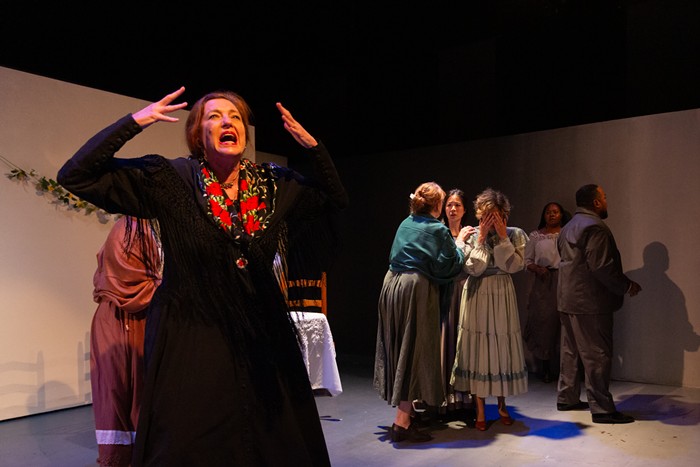Chris Coleman has been the artistic director of Portland Center Stage since 2000, and season subscribers (and local theater critics) are well familiar with his opening night curtain speeches. In those moments and many others in his capacity as a local arts leader, the community has received a distinct impression of Coleman's personality, and of Coleman as a personality.
There's some danger in casting an actor who is best known for being themselves in the role of someone else. This is why Nicolas Cage will always be a little bit hilarious, no matter what role he's in. (Too bad about that domestic abuse charge, though.)
In their current main stage production of Opus, Coleman takes his first role as an actor at Portland Center Stage—and immediately, it's clear that he's no Nicolas Cage. Coleman as we know him from those cheesy curtain speeches is nowhere to be found—he disappears entirely into the role of Elliot, the controlling, unhappy first violinist in a string quartet. And he's good. Damn good, in fact—he's the standout in an ensemble that's quite solid overall.
Opus describes the inner workings of a prominent string quartet—as the show opens, the quartet is looking to replace their violist, Dorian (Matthew Boston), a talented but unstable performer who mysteriously disappears just weeks before the quartet is due to play a gig at the White House. They hire Grace (Sarah Stevens), a sweet young woman who struggles to understand the interplay of affection, hostility, and professional respect within the group. Opus cuts between their rehearsals for the show, and scenes of the deteriorating romantic relationship between Elliot and Dorian, the messy end of which prompted Dorian's departure from the quartet.
Portland Center Stage's production is essentially faultless, but the script itself suffers from an over-reliance on external drama: There is enough inherent tension in the four-person quartet that writer Michael Hollinger didn't need to artificially elevate the stakes by introducing subplots about cancer, or casting Dorian as a Machiavellian mastermind. By play's end, these heavy-handed plot devices have shifted the focus from the quartet's delicate interpersonal balance to a series of exhaustingly high-pitched emotional outbursts. It's a shame, too—in an early scene, as the four musicians argue about whether or not a phrase of Beethoven requires a crescendo, a natural, honest drama emerges from the simple intersection of work and art.



















